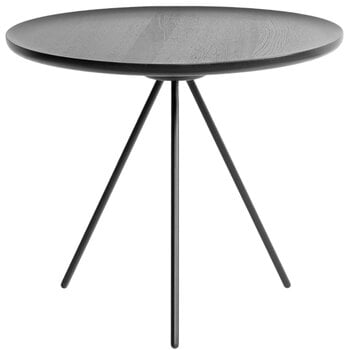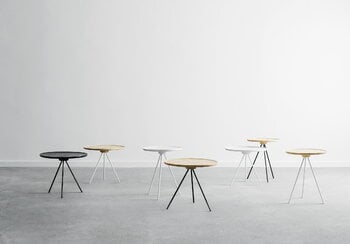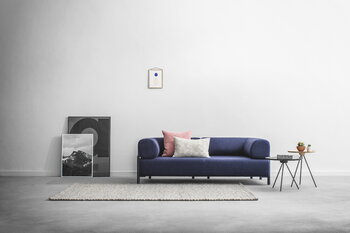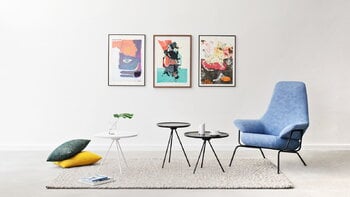The Key coffee table by Hem consists of a solid ash top resting on slender metal legs. The most stunning feature of the design is the natural grain adorning the black-lacquered tabletop, creating fascinating patterns on the wooden surface. The tripod leg structure gives the table a light, contemporary appearance without compromising on sturdiness and functionality.
The Key coffee table is a timeless addition to any interior whether alone or in a cluster of several tables, placed next to an armchair or in the center of a sofa set, for example. Delivered flat-packed, the table is easy to assemble without the need for any tools: the tabletop can simply be screwed onto the tripod legs. The table is designed by design studio GamFratesi.












